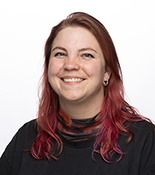
Babette van Amen
EMBL Heidelberg
Germany
EMBL Course
This practical course will cover advanced light microscopy techniques and participants will learn how to derive qualitative and quantitative insights on molecular mechanisms in mechanisms in cells, tissues and developing organisms. Invited guest researchers together with microscopy experts from EMBL will foster an intense information flow with a balance of lectures and practical workshops. The focus of the course will be on the use of fluorescence microscopy to obtain information about localisation and functions of proteins and other bio-molecules at different spatial scales.
This course is directed towards researchers in the life sciences with access to light microscopy equipment, who have an immediate need to apply the techniques they will learn to solve biological problems at the cellular and molecular level in vivo. As the course will be primarily focused on the advanced techniques, we expect participants to have basic knowledge of light microscopy.
The topics will include fluorescence microscopy techniques such as fast time-lapse microscopy of living cells, spinning disk and point-scanning confocal microscopy of large (3D) samples, photo-manipulation as a tool, multicolour single-molecule localization microscopy (SMLM) with spectral demixing, multiplexed imaging, expansion microscopy, FRET-based techniques. For demanding applications, we will cover the aspects of image processing and analysis and the possibilities of microscope automation. The modules will cover all necessary knowledge and demonstrate tools to conduct similar pipelines at your home lab enabling you to answer emerging biological questions.
“I highly recommend this course if you are looking to take your fluorescence microscopy experiments to the next level.” – Josefina Marin-Rojas, Universidad de Chile, Chile

EMBL Heidelberg
Germany
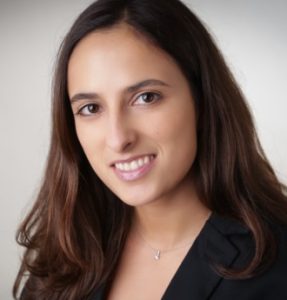
University of Zurich
Switzerland
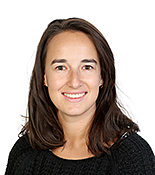
EMBL Heidelberg
Germany
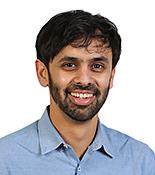
EMBL Heidelberg
Germany
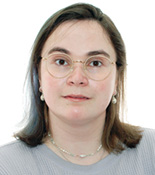
EMBL Heidelberg
Germany
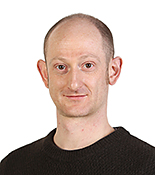
EMBL Heidelberg
Germany
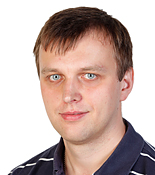
EMBL Heidelberg
Germany
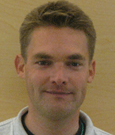
University of Amsterdam
The Netherlands

Evident
Germany
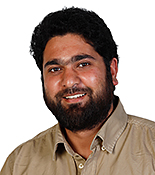
EMBL Heidelberg
Germany
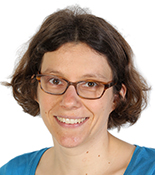
EMBL Heidelberg
Germany
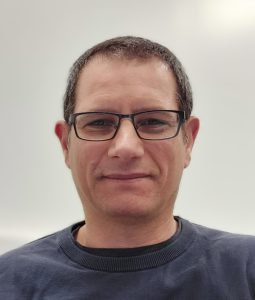
Université de Lorraine
France
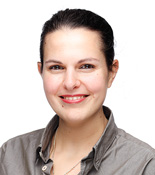
EMBL Heidelberg
Germany
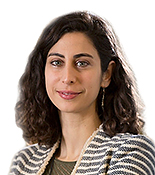
EMBL Heidelberg
Germany
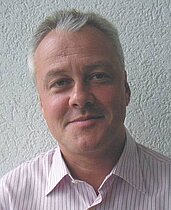
University of Würzburg
Germany
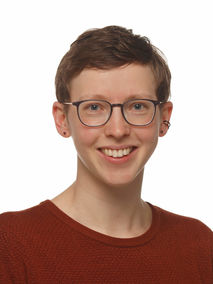
EMBL Heidelberg
Germany
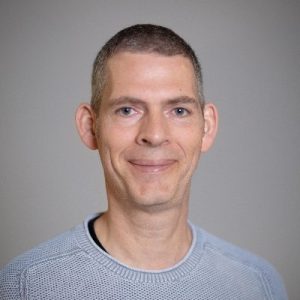
EMBL Heidelberg
Germany
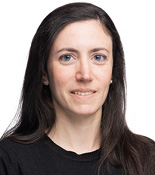
EMBL Heidelberg
Germany
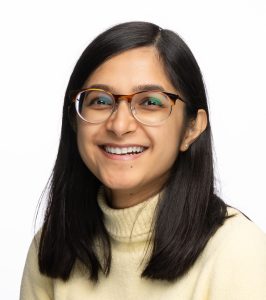
EMBL Heidelberg
Germany
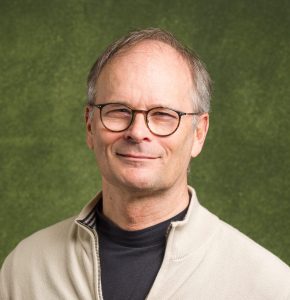
University of Zurich
Switzerland
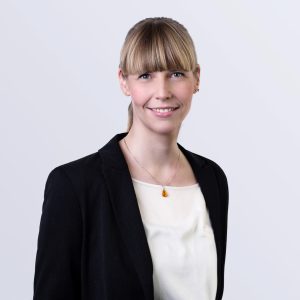
Rapp OptoElectronic
Germany

University of Zurich
Switzerland

EMBL Heidelberg
Germany

EMBL Heidelberg
Germany
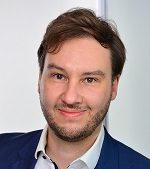
Evident
Germany
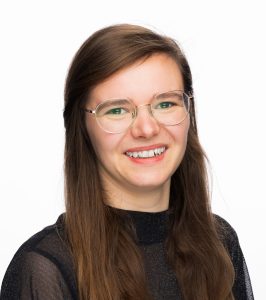
Course and Conference
Officer
EMBL Heidelberg
Germany
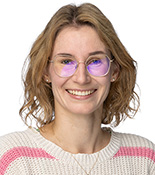
Scientific Training
Officer
EMBL Heidelberg
Germany
Are you on social media? Post using #EMBLFluorImaging and don’t forget to tag @EMBLEvents.
| Time | Description | Location |
|---|---|---|
| 16:00 – 16:30 | Welcome, house notes and course overview | ISG Hotel |
| 16:30 – 17:30 | Lecture: Concepts in light microscopy Urs Ziegler – University of Zurich, Switzerland | ISG Hotel |
| 17:30 – 18:00 | Coffee Break | ISG Hotel |
| 18:00 – 19:00 | Lecture: Adaptive feedback microscopy Aliaksandr Halavatyi – EMBL Heidelberg, Germany | ISG Hotel |
| 19:00 – 21:00 | Dinner | ISG Hotel |
| Time | Description | Location |
|---|---|---|
| 08:50 – 09:00 | Overview of the day and safety briefing | Courtyard Room A & B |
| 09:00 – 09:55 | Lecture: Expansion microscopy Gautam Dey – EMBL Heidelberg, Germany | Courtyard Room A & B |
| 09:55 – 10:40 | Lecture: Advanced optical sectioning techniques Steven Coleman – VisiTech International, UK | Courtyard Room A & B |
| 10:40 – 11:00 | Coffee break | Courtyard Foyer |
| 11:00 – 12:30 | Practical: Preparation of expansion microscopy samples Caroline Simon – EMBL Heidelberg, Germany Babette van Amen – EMBL Heidelberg, Germany Johanna Tocci – EMBL Heidelberg, Germany Lucia Pigazzini – EMBL Heidelberg, Germany | Training Lab |
| 12:30 – 13:30 | Lunch | EMBL Canteen |
| 13:30 – 13:40 | Introduction to the practicals | |
| 13:40 – 16:10 | Practical Session 1: Live cell imaging Joana Delgado – University of Zurich, Switzerland Steven Coleman – VisiTech International, UK (Group 1) 3D imaging of model organisms with CLSM Stefan Terjung – EMBL, Heidelberg, Germany Robert Kasper – Evident, Germany (Groups 3+4) Imaging expanded samples Gautam Dey – EMBL Heidelberg, Germany (Group 2) | Microscopy rooms |
| 16:10 – 16:30 | Coffee break | |
| 16:30 – 19:00 | Practical Session 2: Live cell imaging Joana Delgado – University of Zurich, Switzerland Steven Coleman – VisiTech International, UK (Group 4) 3D imaging of model organisms with CLSM Stefan Terjung – EMBL, Heidelberg, Germany Robert Kasper – Evident, Germany (Groups 1+2) Imaging expanded samples Gautam Dey – EMBL Heidelberg, Germany (Group 3) | Microscopy rooms |
| 19:00 – 21:00 | Pizza Dinner and flash talks | Rooftop Lounge |
| Time | Description | Location |
|---|---|---|
| 09:00 – 09:05 | Overview of the day | Computer Training Lab |
| 09:05 – 10:05 | Practical: Setting and debugging adaptive feedback microscopy pipelines Manuel Gunkel – EMBL Heidelberg, Germany | Computer Training Lab |
| 10:05 – 11:05 | Lecture: Imaging biological samples using novel and non-conventional optical methods Guy Malkinson – Université de Lorraine, France | Courtyard Room A & B |
| 11:05 – 11:30 | Coffee break | Courtyard Foyer |
| 11:30 – 12:30 | Discussion round: Techniques for imaging model organisms Stefan Terjung – EMBL Heidelberg, Germany | Courtyard Room A & B |
| 12:30 – 13:30 | Lunch | EMBL Canteen |
| 13:30 – 13:40 | Introduction to the practicals | |
| 13:40 – 16:10 | Practical Session 3: Live cell imaging Joana Delgado – University of Zurich, Switzerland Steven Coleman – VisiTech International, UK (Group 2) Deconvolution Urs Ziegler – University of Zurich, Switzerland Martin Fritsch – EMBL Heidelberg, Germany (Groups 3+4) Imaging expanded samples Gautam Dey – EMBL Heidelberg, Germany (Group 1) | Microscopy rooms & Computer Training Lab |
| 16:10 – 16:30 | Coffee break | |
| 16:30 – 19:00 | Practical Session 4: Live cell imaging Joana Delgado – University of Zurich, Switzerland Steven Coleman – VisiTech International, UK (Group 3) Deconvolution Urs Ziegler – University of Zurich, Switzerland Martin Fritsch – EMBL Heidelberg, Germany (Groups 1+2) Imaging expanded samples Gautam Dey – EMBL Heidelberg, Germany (Group 4) | Microscopy rooms & Computer Training Lab |
| 19:00 – 21:00 | Handfood dinner and flash talks | Rooftop Lounge |
| Time | Description | Location |
|---|---|---|
| 09:00 – 09:50 | Lecture: Introduction to SMLM, from concepts to samples | Courtyard Room A & B |
| 09:50 – 10:50 | Lecture: A DNA toolbox for spatial biology Sinem Saka – EMBL, Heidelberg | Courtyard Room A & B |
| 10:50 – 11:10 | Coffee break | Courtyard Foyer |
| 11:10 – 11:40 | Lecture: Photomanipulation techniques and applications Anja Zimmermann – Rapp OptoElectronic GmbH | Courtyard Room A & B |
| 11:40 – 12:30 | Lecture: Measuring interactions and biosensors using FRET Mark Hink – University of Amsterdam, The Netherlands | Courtyard Room A & B |
| 12:30 – 13:30 | Lunch | EMBL Canteen |
| 13:30 – 13:40 | Introduction to the practicals | |
| 13:40 – 16:10 | Hands-on Practical Session 5: Multicolor Single molecule Localization Microscopy with Spectral Demixing Giovanni Russo, Caterina Severi – Abbelight, France (Group 2) Deciphering Spatial Patterns: The Crucial ‘Where’ in Multiplexed Immunofluorescence within Tissues Yulia Ermakova, Muzamil Khan, Vishwachi Tripathi – EMBL Heidelberg, Germany (Group 1) FRET Mark Hink – University of Amsterdam, The Netherlands Stefan Terjung – EMBL, Heidelberg, Germany (Group 4) Applying adaptive feedback microscopy for high-throughput photoactivation of specific cell phenotypes Aliaksandr Halavatyi, Manuel Gunkel – EMBL Heidelberg, Germany Anja Zimmermann – Rapp OptoElectronic GmbH, Germany (Group 3) | Microscopy rooms |
| 16:10 – 16:30 | Coffee break | |
| 16:30 – 19:00 | Hands-on Practical Session 6: Multicolor Single molecule Localization Microscopy with Spectral Demixing (Group 4) Deciphering Spatial Patterns: The Crucial ‘Where’ in Multiplexed Immunofluorescence within Tissues (Group 3) FRET (Group 2) Applying adaptive feedback microscopy for high-throughput photoactivation of specific cell phenotypes (Group 1) | Microscopy rooms |
| 19:00 – 19:45 | Bus to downtown via ISG hotel | |
| 19:45 – 22:00 | Dinner downtown | Oskar Restaurant & Vinotheque |
| Time | Description | Location |
|---|---|---|
| 09:00 – 09:05 | Overview of the day | Courtyard Room A & B |
| 09:05 – 10:05 | Lecture: Visualizing chromosomes during meiosis Simone Köhler – EMBL Heidelberg, Germany | Courtyard Room A & B |
| 10:05 – 11:05 | Lecture: Small-molecule fluorophores for biological imaging Claire Deo – EMBL Heidelberg, Germany | Courtyard Room A & B |
| 11:05 – 11:30 | Coffee break | Courtyard Foyer |
| 11:30 – 12:30 | Lecture: True molecular resolution imaging: Fluorescence imaging with a spatial resolution in the one-digit nanometer range Markus Sauer – University of Würzburg, Germany | Training Lab |
| 12:30 – 13:30 | Lunch | EMBL Canteen |
| 13:30 – 13:40 | Introduction to the practicals | |
| 13:40 – 16:10 | Hands-on Practical Session 7: Multicolor Single molecule Localization Microscopy with Spectral Demixing (Group 1) Deciphering Spatial Patterns: The Crucial ‘Where’ in Multiplexed Immunofluorescence within Tissues (Group 2) FRET (Group 3) Applying adaptive feedback microscopy for high-throughput photoactivation of specific cell phenotypes (Group 4) | Microscopy rooms |
| 16:10 – 16:30 | Coffee break | |
| 16:30 – 19:00 | Hands-on Practical Session 8: Multicolor Single molecule Localization Microscopy with Spectral Demixing (Group 3) Deciphering Spatial Patterns: The Crucial ‘Where’ in Multiplexed Immunofluorescence within Tissues (Group 4) FRET (Group 1) Applying adaptive feedback microscopy for high-throughput photoactivation of specific cell phenotypes (Groups 2) | Microscopy rooms |
| 19:00 – 20:30 | Dinner | EMBL Canteen |
| Time | Description | Location |
|---|---|---|
| 09:00 – 10:30 | Practical: FRET data analysis Mark Hink – University of Amsterdam, The Netherlands | Computer Training Lab |
| 10:30 – 11:00 | Coffee break | |
| 11:00 – 12:30 | Practical: SMLM data analysis | Computer Training Lab |
| 12:30 – 13:30 | Lunch | EMBL Canteen |
| 13:30 – 15:00 | Preparation of student presentations | Computer Training Lab |
| 15:00 – 16:30 | Student presentations | Computer Training Lab |
| 16:30 – 17:00 | Wrap up of course and departure | Computer Training Lab |
The course is limited to 16 participants. For selection purposes, please note that your application will not be considered without a letter of motivation.
Registration fees include admission, course materials, meals and coffee breaks. Participants are expected to book and pay their own accommodation and travel expenses.
| Academia | €625.00 |
| PhD Student | €625.00 |
| Industry | €1,150.00 |
A letter to support your visa application will be issued, on request, once payment of the registration fee is confirmed. We recommend that you book your visa appointment as soon as possible, to avoid any delay with your visa application.
The registration fee should be paid only after acceptance to the course. The results will be announced approximately 2-3 weeks after the application deadline.
After you have logged in and successfully registered, you will receive an email asking you to submit your motivation letter. Click on the link provided and enter your motivation letter in the text box provided. Alternatively you can submit your motivation letter by clicking on the link on the confirmation page directly after registering.
Instructions
Please note:
For detailed instructions, please watch our video on how to submit a course motivation letter.
For further information about registration and motivation letter submission please refer to the FAQ page.
Limited financial assistance is provided by the EMBL Advanced Training Centre Corporate Partnership Programme and EMBO in the form of registration fee waivers, travel grants and childcare grants.
Your place in the meeting is only confirmed by paying the registration fee, which is mandatory even when receiving a fee waiver.
The fee waiver will cover the registration sum that you have paid to attend the course.
The travel grant will cover the cost of travel (airfare, train, bus, taxi, accommodation, visa, and/or registration fees*) and is provided up to specified caps which are normally as follows:
– up to €400 for participants travelling to an EMBL Course within Europe.
– up to €1000 for participants travelling to an EMBL Course from outside Europe.
*Registration fees are only covered for EMBO Practical Courses
The organisers may reduce the grant cap to accommodate more participants. Recipients will be notified of their travel cap amount when they are informed of the outcome of their application. Original receipts must be provided with your signature for all costs incurred within two months of completion of travel. Scanned copies cannot be accepted.
There is the possibility to apply for a childcare grant to offset child care costs incurred by participants, speakers, trainers and organisers when attending a course. Eligible costs include (but are not limited to) fees for a babysitter or child-care facility and travel costs for a caregiver. Please note that priority will be given to early-stage researchers. There is a limited amount of funding available for the childcare grants and funds will be distributed amongst eligible applicants.
Applies to selected courses only. Availability will be indicated during the abstract or motivation letter submission process.
This grant covers costs related to your attendance to the course (registration, travel and accommodation costs). The grant is restricted to PhD students and postdocs who conduct basic biomedical research.
Whether you are eligible to apply for a travel grant, depends on when you received your university entrance qualification (e.g. Abitur, A-Levels, High School Diploma, Final State Examination):
– for PhD and MD students, as well as graduates, the university entrance qualification must not have been obtained more than 11 years ago at the time of the envisaged course
– for postdocs, the university entrance qualification must not have been obtained more than 13 years ago at the time of the envisaged course
If you are attending virtually, you can apply for financial assistance in the submission portal by the abstract deadline. Read the instructions on how to apply for financial assistance. Only submissions for financial assistance will be accepted. Presentation abstracts cannot be submitted here and will be declined.
In your application you will be asked to summarise your current work, answer questions regarding why your lab cannot fund your attendance, and how your attendance will make a difference to your career. Application for financial support will not affect the outcome of your registration application.
*For some events, applications for Childcare Grants will still be done by email. Information about the grant will be sent out shortly after the abstract/motivation letter deadline. Please contact the event Conference Officer if you have any questions.
The scientific organisers will select the recipients of registration fee waivers during the participant selection process for courses. Results will be announced approximately 6 – 8 weeks before the event start date, however for some events this may be delayed. Selection results do not impact your admission to the meeting. Selection for registration fee waivers and travel grants is based on scientific merit, your current work or study location, the reasons for needing financial support, and the impact this event will have on your career.
Childcare grants will be allocated in the same timeframe (6-8 weeks before the event start date). Please note that priority will be given to early-stage researchers.
Check out this list of external funding opportunities.
For further information about financial assistance please refer to the FAQ page.
Accommodation is not included in the registration fee. Participants are expected to book and pay for their own accommodation.
Single rooms have been reserved for 6 nights from Saturday, 17 May 2025 to Friday, 23 May 2025 at the ISG hotel (Im Eichwald 19, 69126 Heidelberg).
After the selection process, selected participants should contact the hotel directly to make a booking with a booking code (EVA25-01) by the deadline of Wednesday, 16 April 2025.
We recommend that all course participants stay at the dedicated hotel for the course.
For travel information, please see here.
If you are travelling to the conference within Germany then you are eligible for the Deutsche Bahn ‘Event Ticket’ (called the ‘Veranstaltungsticket’ in German). This will result in a lower ticket price if your travel distance to Heidelberg is more than 100 km. You need to provide proof of your event attendance when purchasing the ticket.
For more information in English see here or in German see here.
You can book your ticket here.
Shuttle buses will go from the ISG Hotel to EMBL and back, mornings and evenings. A bus schedule and location of the bus stops will be made available prior to the meeting.
Address: EMBL Heidelberg, Meyerhofstraße 1, 69117 Heidelberg, Germany
For more information about accommodation and travel, please refer to the FAQ page.
All meals and coffee breaks are included in the registration fee. Our catering staff will prepare a wide variety of vegetarian meals, meat and fish dishes, soups, pasta, fresh fruit and vegetables, as well as a variety of desserts.
Please wear your badge at all times when serving yourself.
No food or drinks are allowed in the laboratories.
In most places the electricity is 220 volts AC (50 cycles). An adaptor and a plug that fits the German socket may be needed for your appliances/laptop (i.e. American, Japanese, etc.). A USB charging station for electronic devices is available at the registration desk..
If you are interested in purchasing EMBL merchandise (products presented in the glass display in the registration area), please email the EMBL shop to place an order or get in contact with your Course Organiser.
Kindly note the EMBL shop is only open upon request and all purchases must be made in cash (Euros only).
Please read EMBL’s COVID-19 safety policy for on-site events.
Do not smoke in any EMBL building.
Eating and drinking is prohibited in all laboratories.
Do not enter any restricted areas or the laboratories unless instructed to do so.
If first aid is required …
In case of fire …
Beyond first aid…
Please remember to bring your own medication, if needed, to the conference. Note that the next pharmacy is a 4-minute drive from the EMBL, but for many medications you will be required to see a doctor to get a prescription.
Ensure in advance that your medical insurance will cover you during your visit in the event that you do need to see a doctor while in Heidelberg. In any case, the EMBL Course and Conference Office will assist you to get to the pharmacy and a doctor of your choice if necessary.
Wi-Fi is available on campus. Log in using the EMBL-Events network and the event specific password, which will be provided on site. The eduroam network (secure, worldwide roaming access service developed for the international research and education community) is also available.
‘’Lost and Found’’ items are kept at the registration desk until the end of the conference.
There are lockers available on-site to store your luggage, which require a 2 EURO coin to operate. There is another luggage room on level E0, which is free to use but remains unlocked during the conference.
There is a nursing room available in the ATC Rooftop Lounge on level A29.
During the conference, an EMBL Photographer may be taking photos. If you would not like to appear in these, please inform the photographer or a member of the Course and Conference Office.
We can help to print your boarding pass/train ticket. Please send it to events@embl.de and collect your print-outs at the registration desk.
There is a room for prayer, meditation, and yoga located on level E0 behind the Auditorium. Please be respectful of others using the room.
A variety of activities in Heidelberg can be found on the website of Heidelberg Marketing.
During the event, we provide conference shuttle buses to and from EMBL. In addition, there is the public bus 39A that serves the EMBL campus and taxis can be easily booked at any time. Information on the shuttle buses can be found on the individual event website and more detailed information on travelling to EMBL can be found on our Travel Information page.
Please find additional information including FAQs and terms and conditions on our Information for Participants page.
This course is organised in cooperation with Evident.
Media partners
Microcscopy and Analysis, a Wiley journal
We offer a variety of event sponsoring possibilities, with the flexibility to select a set sponsorship package or combine individual sponsorship options to suit your event budget. Discounts are available for companies sponsoring multiple events at EMBL Heidelberg. View other events, or contact sponsorship@embl.de for further information.
If you are interested in becoming a media partner of this event, please visit our media partnerships webpage.
EMBL wishes to warn sponsors of EMBL conferences and courses of fraudulent schemes purporting to offer sponsorship opportunities on behalf of EMBL or affiliated with EMBL officials. One current scam campaign of which we are aware is conducted using the name ‘Judy Eastman’ (judy@gopcontact.a2hosted.com) and entails approaches to sponsors offering sponsorship opportunities on EMBL’s behalf. Please be kindly advised that all relevant communication regarding sponsorship of EMBL conferences, symposia and courses is handled by EMBL directly and is sent from an official EMBL account. EMBL does not work with any external providers on sponsorship acquisition.
Please also note that:
Suspicious communications purportedly from, for or on behalf of EMBL should be reported to EMBL at the following email address sponsorship@embl.de.
Want to let others know you’re attending this event? Take a look at our shareable media and feel free to use them in your social media channels or presentations.

Date: 18 - 23 May 2025
Location: EMBL Heidelberg
Venue: EMBL Advanced Training Centre
Deadline(s):
Registration: Closed
Organisers:
Contact: Karo Wolkersdorfer